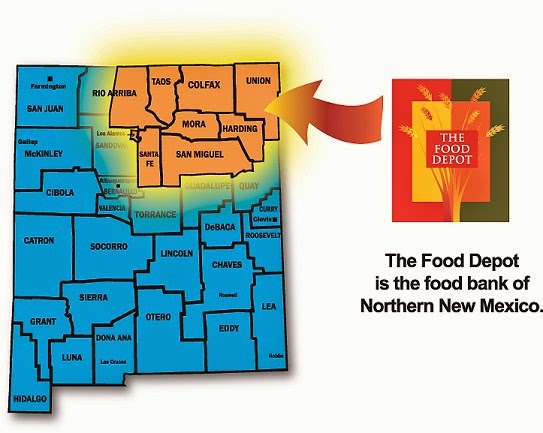The legislative session ended on March 21. Some initiatives did not get past the committee stage, but others were approved and await Gov. Susana Martinez's signature. Below is a summary from LAM-NM and the NMFAPC.
Supplemental SNAP Funding
LAM-NM advocated for additional funding for the State SNAP Supplement Program which serves over 9,000 elderly and people living with disabilities by increasing their SNAP amount to at least $25 per month. LAM-NM advocated for enough funding so that the minimum amount would be $30. The House version of HB2 did not include any additional funding for this particular program.
SB293 (Sen. Nancy Rodriguez) requested $200,000 for the State SNAP Supplement program, which passed the Senate Public Affairs Committee and reached the Senate Finance Committee.
HB93 (Rep.: Larry A. Larrañaga) requested funding for SNAP recipients to be able to double the amount of assistance that they can use to purchase fresh fruits & vegetables at Farmer's Markets.
HB93 passed the House Agriculture, Water & Wildlife Committee and was tabled in the House Appropriations & Finance Committee. Funding for this program is included in the House version of HB2.
Join the LAM-NM Advocacy Network to receive e-mail legislative updates
Local Fresh Fruits and Vegetables in School Meals
The NMFAPC sent out the following note on March 23.
"Call, email or write Governor Susana Martinez immediately to ask her to sign the New Mexico Legislature's recommendation to fund these initiatives."
1) New Mexico Grown Fresh Fruits and Vegetables for School Meals $250,000 recurring towards school purchases of New Mexico grown fresh fruits and vegetables for school meals serving students statewide. (SB415)
The appropriation would support:
The appropriation would support:
- The purchase of New Mexico grown, fresh from the farm, fruits and vegetables to provide students with school meals that will encourage them to eat fresh produce for the rest of their lives.
- Augmenting school nutrition programs by providing more New Mexico grown fresh fruits and vegetables, assisting schools in meeting federal Child Nutrition school meal rules.
- Strengthening New Mexico's farming economy and agricultural legacy by increasing market opportunities for small and mid-scale producers across the state.
2) Double Up Food Bucks for Farmers Markets $400,000 recurring recommended for Supplemental Nutrition Assistance program (SNAP) participants to stretch their food dollars at 32 New Mexico farmers markets the process SNAP transactions.HB93
The appropriation would:
- Serve nearly 400,000 SNAP participants at 32 farmers markets in 18 counties.
- Leverage up to $1.2 million in federal funds. Increase by 800% SNAP food sales at farmers markets. Strengthen New Mexico's farming economy.
3) Food Infrastructure capital outlay for the Española "food hub" and Rio Grande Development Corporation.
The Governor can be reached in several ways:
Call: 505-476-2200. You can also leave a direct message with her Policy Analyst Tiffany Smyth.Email: via this link
Send a Letter to :
Susana Martinez, Governor
State Capitol Building
490 Old Santa Fe Trail, Suite 400
Santa Fe, NM 87501
(sample letter)
Stay Tuned for Updates













































